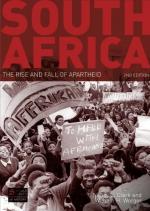|
This section contains 5,926 words (approx. 20 pages at 300 words per page) |

|
SOURCE: Morales, Donald M. “Post Apartheid Drama.” In African Visions: Literary Images, Political Change, and Social Struggle in Contemporary Africa, edited by Cheryl B. Mwaria, Silvia Federici, and Joseph McLaren, pp. 253-65. Westport, Conn.: Greenwood Press, 2000.
In the following essay, Morales evaluates the influence of politics on post-apartheid drama, noting that political issues afford both artistic opportunities and thematic limitations.
In Esiaba Irobi's play, Gold, Frankincense and Myrrh (1989), the Nigerian playwright turns the long-standing debate on Wole Soyinka's linguistic complexity into high comedy. The setting is an African Writers' convention at Ibadan's University Staff Club where Soyinka is on trial for “crimes” of “private obscurantism,” and “gratuitous conundrums” (25). To underscore these charges, Irobi gives Soyinka, “Ogun” in the play, an interpreter to paraphrase his remarks for an attending audience of writers and scholars.1 However, in the midst of this comic debate, a South African woman proffers a sobering...
|
This section contains 5,926 words (approx. 20 pages at 300 words per page) |

|


